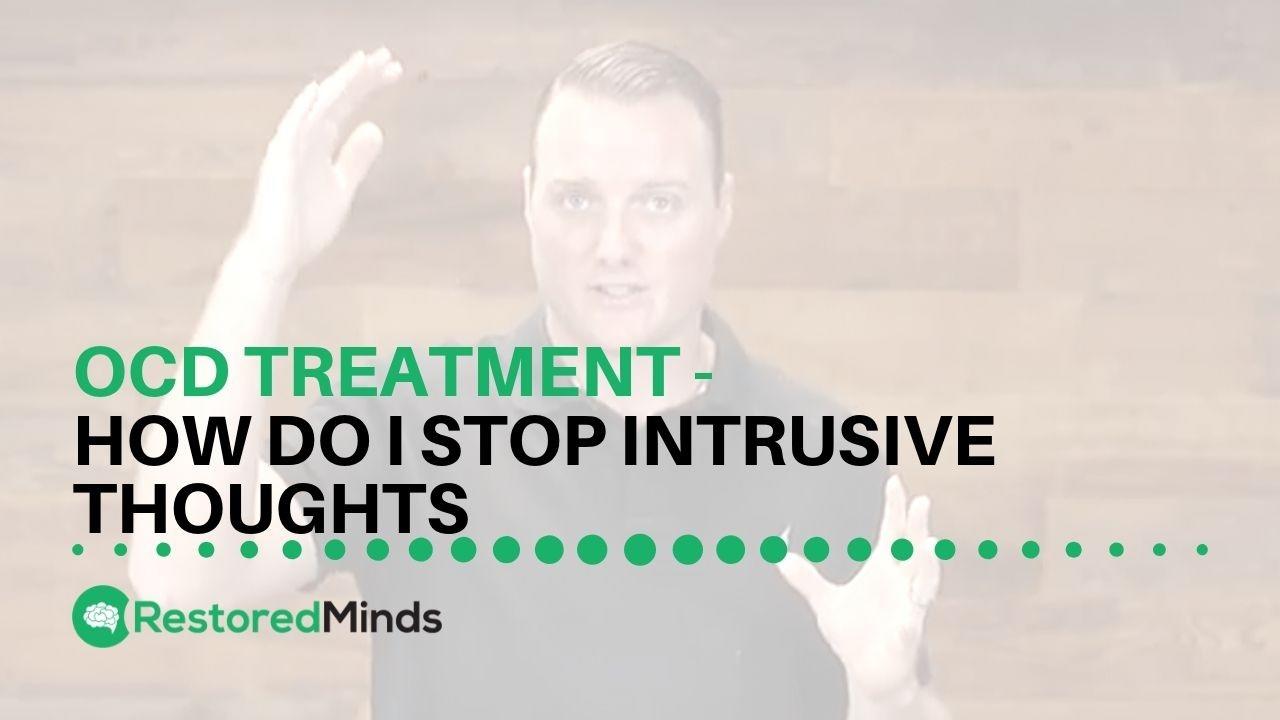OCD Treatment - How Do I Stop My Thoughts?
Jun 27, 2018
Title: How to Stop Intrusive Thoughts: A Guide to OCD Treatment
Welcome to Restored Minds! In this post, we're delving into the complexities of OCD treatment and discussing effective strategies for managing intrusive thoughts. This blog adapts insights from our popular YouTube channel video titled "OCD Treatment - How Do I Stop Intrusive Thoughts," presented by Matt.
Understanding OCD and Intrusive Thoughts
Obsessive-Compulsive Disorder (OCD) is a challenging condition where individuals experience persistent, unwanted thoughts (obsessions) and feel compelled to perform certain behaviors (compulsions) to alleviate the anxiety these thoughts provoke. A common question that arises in OCD treatment is: "How do I stop bad thoughts?"
The Quest to Stop Intrusive Thoughts
As Matt explains in the video, many people starting their recovery journey believe that stopping these thoughts is the ultimate goal. While this seems logical—if the thoughts go away, so should the anxiety—the reality of OCD complicates this approach.
The White Bear Experiment
One of the key points Matt discusses is the famous white bear experiment by social psychologist Daniel Wegner. Participants were asked not to think about a white bear for a specified period. The result? The harder they tried to suppress the thought, the more it came to mind. This phenomenon highlights a crucial aspect of OCD treatment: trying to stop thoughts only strengthens their presence.
The Paradox of Acceptance
According to Matt, the paradox of OCD is that to decrease intrusive thoughts, one must accept their presence rather than try to control or suppress them. Acceptance doesn't mean resignation but rather recognizing the thoughts without reacting compulsively. This method ultimately teaches the brain that these thoughts are not threats, gradually diminishing their intensity and frequency.
Steps to Manage Intrusive Thoughts in OCD
-
Acknowledge the Thought: When an intrusive thought arises, acknowledge it without judgment. Understand that it's a product of OCD, not a reflection of reality.
-
Avoid Compulsions: Resist the urge to perform compulsive behaviors in response to the thought. Compulsions only reinforce the severity of the obsessions.
-
Focus on Behavior: Concentrate on controlling your reactions rather than the thoughts themselves. Modify your behavior to be more accepting and less reactive.
-
Practice Exposure: Exposure and Response Prevention (ERP) is a common OCD treatment. Gradually expose yourself to the thoughts that cause anxiety while refraining from engaging in compulsions.
-
Seek Professional Help: Consider therapy or counseling with a specialist experienced in OCD treatment. They can provide tailored strategies and support.
Conclusion
In conclusion, managing intrusive thoughts involves a paradoxical approach: acceptance rather than suppression. By changing how you react to these thoughts, you train your brain to see them as non-threatening, which can ultimately reduce their occurrence and impact. Remember, recovery from OCD is a journey that requires persistence and support.


